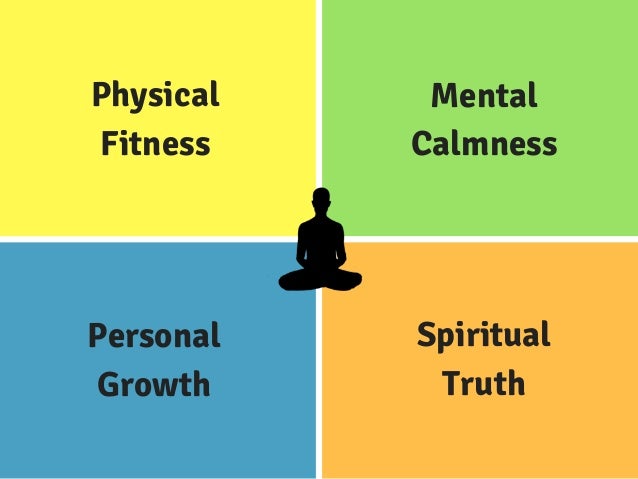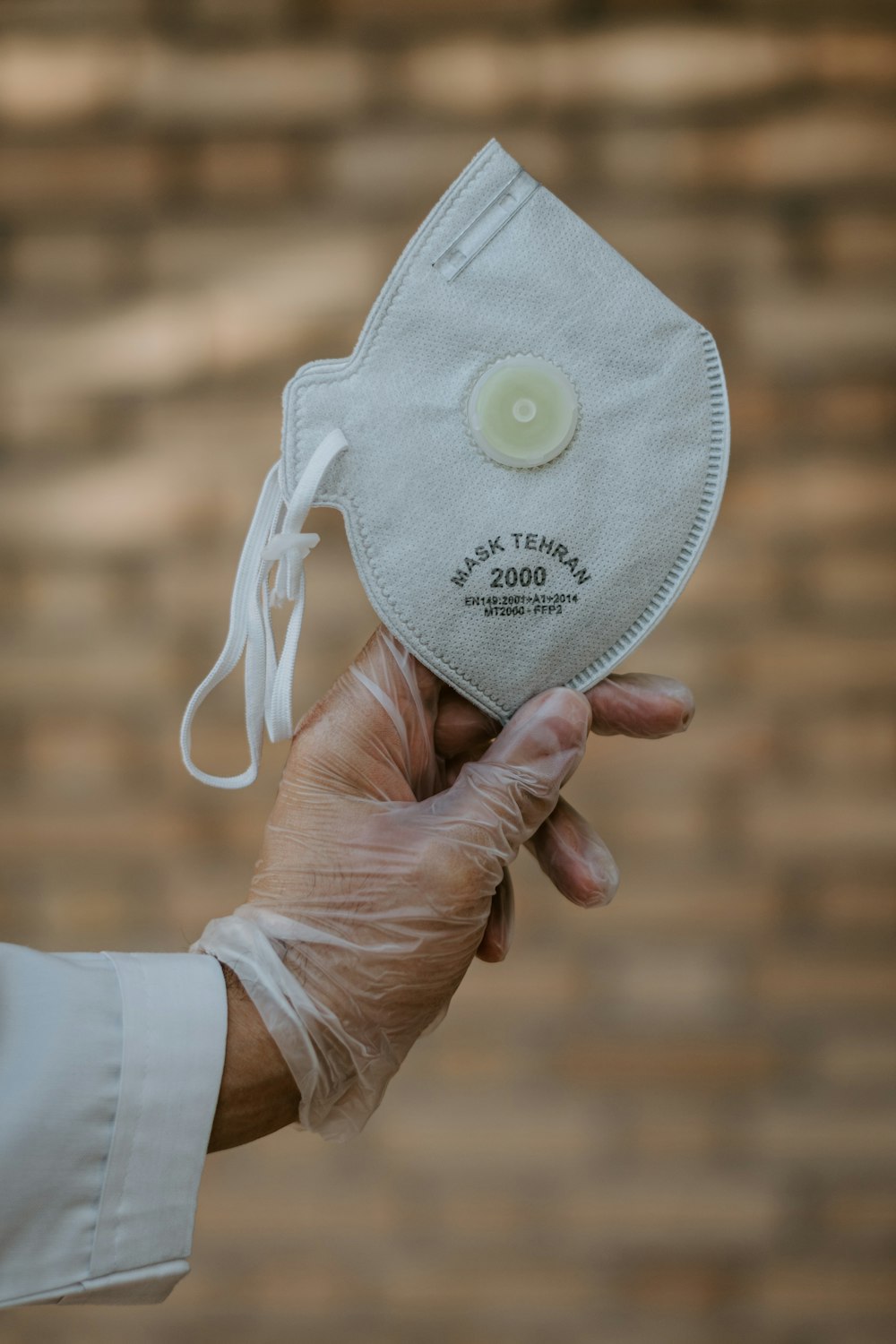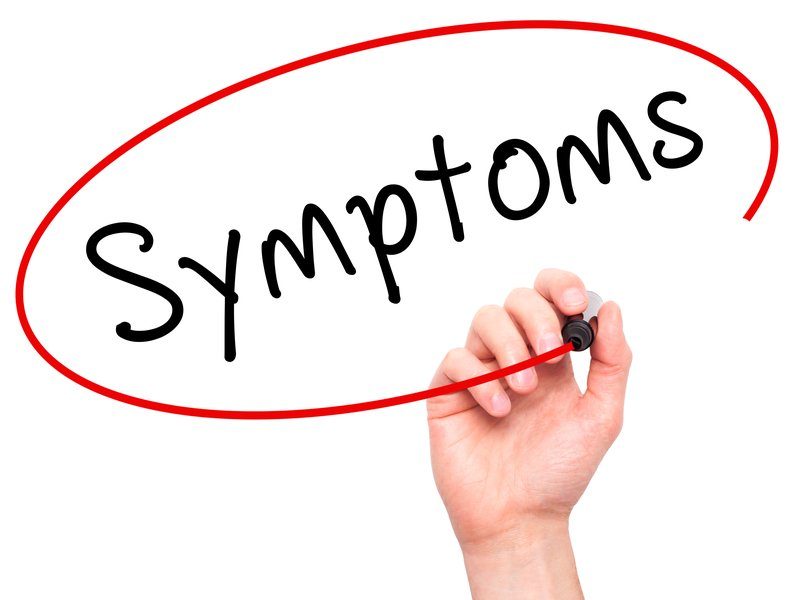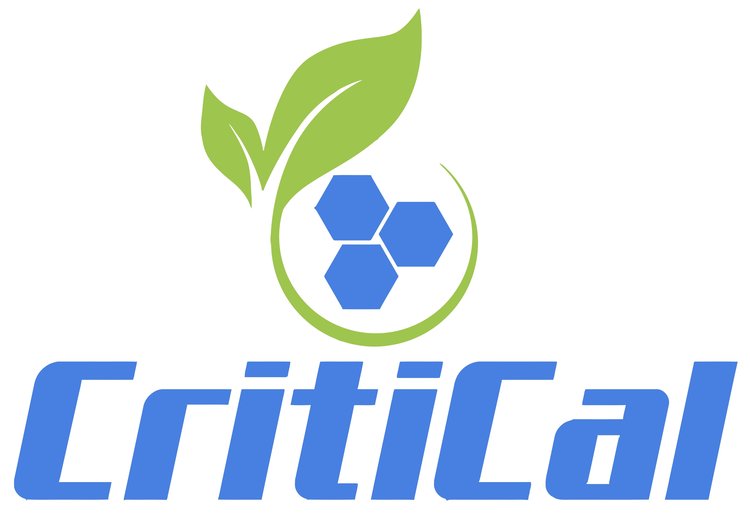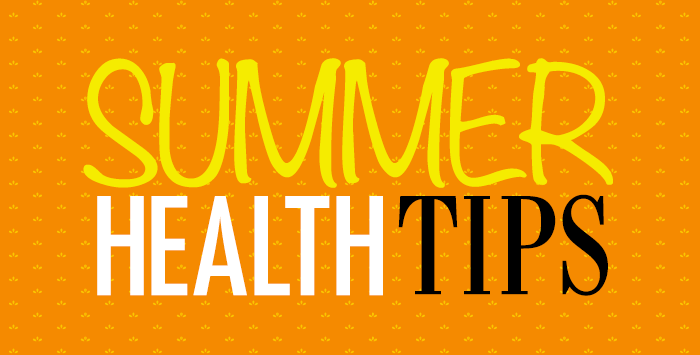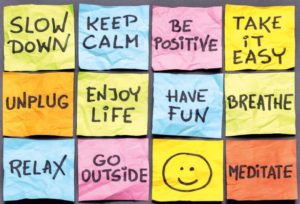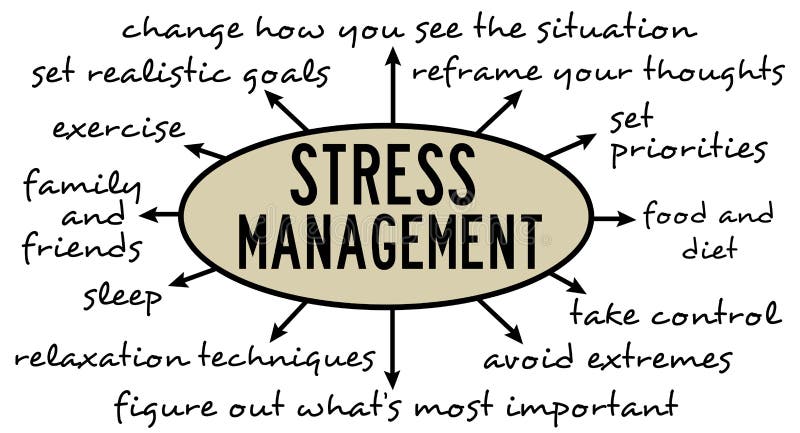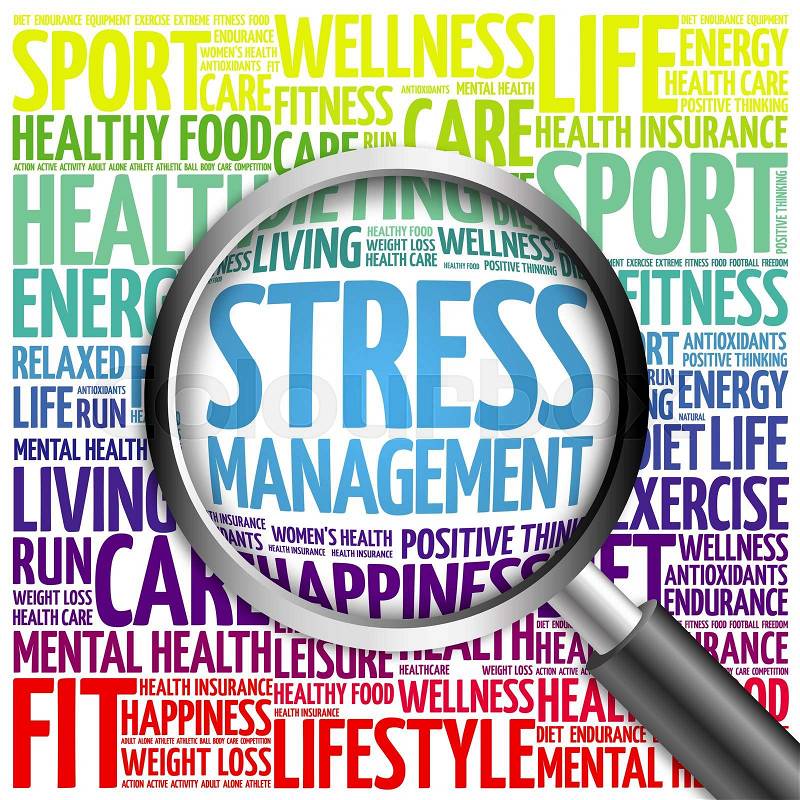Vital Vitamins
Your Health Motto “EATING RIGHT IS MORE IMPORTANT THEN EATING MORE”
Vitamins are compounds that are essential to life and health in small amounts. Some vitamins are synthesized by humans and animals, but the key source is from the diet. A varied and balanced diet should supply all the vitamins required for good health. Vitamins were discovered through research over many years.
Vitamins allow your body to grow and develop. They also play important roles in bodily functions such as metabolism, immunity, and digestion. Cells in your body perform chemical reactions that keep you functioning properly. A vitamin is a molecule that your body needs in order to carry out certain reactions. Because it can’t create vitamin molecules for itself, you have to get them via food and drink.
There are 13 in total: Vitamin A, C, D, E, K, B1, B2, B3, pantothenic acid, biotin, B6, B12, and folic acid. The best way to meet your vital vitamin needs is to eat a balanced diet containing a variety of foods. If you can’t meet your needs through food alone, you may require dietary supplements. Seek guidance from your doctor or dietician before taking supplements, however.
We are eating too much-saturated fat and sugar and not eating enough fiber and certain vitamins and many minerals which are important for health. Vitamins perform a whole bunch of different functions in your body, from assisting in bone growth to helping convert food into energy. So getting your vitamins from food is always preferred. In whole foods, vitamins come prepackaged with other beneficial substances, like fiber and phytonutrients. These are the natural compounds that give plants their colors, flavors, and texture — growing evidence suggests that they can keep us healthy and prevent diseases.
On the Vitamin Trail- So where do you start if you want to make sure you’re getting enough of the right vitamins? Firstly, take a look at your diet. When it comes to fruit and veg, it’s a good idea to try to ‘eat the rainbow’ every day. Different colored vegetables often pack a different vitamin punch. So try to include something green, something red, something orange or white at meals throughout the day (think lettuce, tomatoes, peppers, and onions!)
Minimize alcohol and smoking – both habits that destroy nutrients in our bodies – and think about whether you have any particular health concerns – such as growing older, motherhood, dull skin, stiff joints, and so on. Then you might want to consider how to take in more of the nutrients that might assist with that problem or life stage. If in doubt, always talk to a health professional, and remember to eat up all your greens!
Click here for Discovery of Vitamins
Scientists worked out that there must be agents in foods that were vital to health. These became known as vitamins, from ‘vital amine’. This was because scientists originally thought that all vitamins were from the family of nitrogen-containing compounds known as amines
During the 18th and 19th centuries, scientists carried out studies on animals and identified the activity of the first vitamin, antirachitic A (now called vitamin D), which cured rickets in rats. The vitamin itself was identified in 1922 as part of research into rickets.
The B vitamins are a group of eight vitamins, vitamins B1, B2, B3, B5, B6, B7, B9, and B12. Initially thought to be a single vitamin, vitamin B was discovered around 1915. The individual B vitamins were isolated over a number of years:
- Vitamin B1 in 1912
- Vitamin B2 in 1926
- Vitamin B3 (niacin) in 1937
- Vitamin B6 in 1934
- Vitamin B9 (folic acid) in 1933.
Vitamin A was next – it was discovered in 1917 by two groups of researchers in the USA and first synthesized in 1947 by Dutch chemists.
Vitamin C was discovered in 1912, isolated in 1932 and synthesized in 1934, making this the first synthetic vitamin to be available to people to take as a supplement. Vitamin E was discovered in 1922.
Vitamin K was discovered by German scientists in 1929 and was named the ‘Koagulationsvitamin’ (so vitamin ‘K’) because it affected the clotting of blood. It was synthesized in 1939.
Vitamins can be divided into two types – fat-soluble and water-soluble. Fat-soluble vitamins, vitamins A (see ‘Vitamin A’), D (see ‘Vitamin D’), E (see ‘Vitamin E’), and K (see ‘Other Vitamins’), are found in meat (especially liver), dairy products, eggs, oily fish, nuts, seeds, grains and leafy green vegetables (vitamin K is also made by some bacteria in the gut). Vitamin D is formed in the skin following exposure to sunlight. Water-soluble vitamins are the B vitamins and vitamin C.
Fat-soluble vitamins are not destroyed during cooking and do not leach into the water, unlike water-soluble vitamins. Fat-soluble vitamins are absorbed through the walls of the small intestine in small droplets of fats and enter the bloodstream.
What Causes Deficiencies in Fat-Soluble Vitamins? If someone does not eat enough food containing fat-soluble vitamins, they will develop what is called a ‘primary deficiency’. If, however, they eat enough of the vitamins but cannot absorb or use them, whether caused by disease or drugs, they have a ‘secondary deficiency’. People with secondary deficiencies need to take additional supplements of fat-soluble vitamins.
Very low-fat diets can cause deficiencies in fat-soluble vitamins – this is a primary deficiency. Fat-soluble vitamins are stored in the liver and fatty tissues, so diets have to be low in fat-soluble vitamins for a long period before the symptoms of deficiency show.
Overdose of fat-soluble vitamins – Because fat-soluble vitamins are stored in the liver and fatty tissues, once the levels get too high, they can remain too high for a long period, leading to something called ‘hypervitaminosis’. This is unlikely to be caused by vitamins occurring naturally in the diet but may be caused by taking high levels of supplements.
Too much vitamin A can cause dry skin, itching, headaches, jaundice, feelings of sickness and dizziness, vomiting, diarrhea, blurred vision, muscle pain, tiredness, fever, insomnia, anemia, and increased risk of bone fractures, including hip fractures. Too much vitamin A in children can slow growth, and too much in pregnancy can cause birth defects.
Too much vitamin D can cause raised levels of calcium in the blood, high blood pressure, nausea, sickness, increased urination, increased thirst, itching, and kidney failure. Too much vitamin D in children can slow mental and physical growth. Too much vitamin K can damage the liver and blood cells.
So what should we be eating? Here is a guide to essential vitamins and minerals.
Click here for A-Z of Vitamins
We all know vitamins and minerals are essential nutrients the body needs – but what does each vitamin do? And which foods are vitamin powerhouses? Here’s the low-down on which letter does what, from A (that is, Vitamin A) to Z (or – zinc).
Vitamins are grouped into two categories:
Fat-soluble vitamins are stored in the body’s fatty tissue. The four fat-soluble vitamins are vitamins A, D, E, and K. These vitamins are absorbed more easily by the body in the presence of dietary fat.
There are nine water-soluble vitamins. The body must use water-soluble vitamins right away. Any leftover water-soluble vitamins leave the body through the urine. Vitamin B12 is the only water-soluble vitamin that can be stored in the liver for many years.
Vitamin A – This helps maintain the membranes of the eyes, the lungs, the digestive system, skin, and the immune system. It also helps in general growth and development, including healthy teeth and skin.
We need 800 micrograms daily, the amount in a portion of cooked carrots. Pregnant women or those planning to try for a baby should not have more than 1,500 micrograms a day as this can lead to birth defects.
Best sources: liver, whole milk, cheese, cod liver oil, carrots, mangoes, and other orange foods including sweet potato and cantaloupe melons.
Signs that you aren’t getting enough: difficulty adapting to dim light, night blindness, or dryness of the cornea.
Vitamin B1
This helps release energy from food and maintains healthy muscles and the nervous system. We need 1.4 milligrams daily, the amount found in one slice of pork, and a serving of peas.
Best sources: meat, especially pork, yeast extract, milk, vegetables, and cheese.
Signs that you aren’t getting enough: poor appetite, upset stomach, depression, and an inability to concentrate. Beriberi, which affects either the heart or the nervous system, is caused by a shortage of this vitamin. Heavy drinkers are prone to the disease as alcohol makes it more difficult for the body to absorb vitamin B1.
Vitamin B2
This helps produce immune cells and maintains the skin, hair, eyes, iron absorption, and nervous system. Daily we need 1.6 milligrams, to be found in a portion of spinach and two egg whites.
Best sources: milk, liver, eggs, cheese, rice, and green leafy vegetables.
Signs that you aren’t getting enough: cracked corners around the lips or a sore tongue. A fifth of all teenage girls does not get enough of this vitamin.
Vitamin B6
This helps with the production of red blood cells and maintains brain function.
We need a daily two milligrams, found in 100g of salmon and a serving of brown rice. Vitamin B6 is destroyed by the contraceptive pill. Women taking the Pill should increase their intake of vitamin B6.
Best sources: chicken, fish, whole grains, and bananas.
Signs that you aren’t getting enough: dermatitis and sores in and around the mouth. Low levels of vitamin B6 can lead to raised levels of the amino acid homocysteine which may increase the risk of cardiovascular disease or a stroke.
Also found in whole unprocessed foods specifically whole grains, potatoes, bananas, lentils, chili peppers, beans, yeast, and molasses
Vitamin C
It helps in strengthening blood vessels and giving skin its elasticity, anti-oxidant function, and iron absorption. It also promotes wound healing.
Best Sources: Everyone knows this one – oranges! But they’re not the only source – other fruits and veggies packed with Vitamin C include guava, red and green peppers, kiwi, grapefruits, strawberries, Brussels sprouts, and cantaloupe.
Signs that you aren’t getting enough: A skin condition known as keratosis pilaris can develop. Also bumpy “chicken skin” forms on the back of the upper arms, thighs or buttocks due to a build-up of keratin protein inside the pores
Vitamin D
Also known as the sunshine vitamin. Helps in strengthening of bones. It also helps maintain proper blood levels of calcium and phosphorus.
Best sources: Ten to 15 minutes of sunshine 3 times a week is enough to produce the body’s requirement of vitamin D for most people at most latitudes. Apart from spending a few minutes out in the sun, which stimulates Vitamin D production, you can get this nutritional must from eggs, fish, and mushrooms. It is very hard to get enough vitamin D from food sources alone
Folic acid
This helps make red blood cells and is vital during the first 12 weeks of pregnancy to reduce the risk of birth defects such as spina bifida.
Each day we need 200 micrograms, found in two portions of steamed spinach. Women trying to become pregnant should take 400 micrograms.
Best sources: There are plenty of scrumptious natural sources of folic acid, including dark leafy greens, asparagus, broccoli, citrus fruits, beans, peas, lentils, seeds, nuts, cauliflower, beets, Whole grains, and corn.
Signs that you aren’t getting enough: insomnia, depression, irritability.
Vitamin E
This helps protect cell membranes from damage so it may shield against cancer and heart disease. It also helps in blood circulation and protection from free radicals.
We need 12 milligrams daily, the amount found in a spoonful of vegetable oil.
Best sources: vegetable oils, nuts, broccoli, almonds, and seeds. You can also fill up on other nuts, sunflower seeds and tomatoes to reap the benefits.
Signs that you aren’t getting enough: deficiencies tend to affect those who have difficulty absorbing fat. Symptoms include weakened muscles and tingling in the hands and feet.
Vitamin K
This helps blood coagulation – that is, the process by which your blood clots.
Best Sources: Leafy greens are the best natural sources of Vitamin K – so make sure you’re eating lots of kale, spinach, Brussels sprouts, and broccoli.
Signs that you aren’t getting enough: A warning sign of a vitamin K deficiency is excessive bleeding and bruising easily, due to abnormalities of coagulation factors that help with blood clotting. This bleeding can sometimes begin as an oozing from the gums or nose.
Calcium
This is needed for strong bones and teeth, blood clotting, and muscle contraction. It may help reduce high blood pressure. The daily requirement is 800 milligrams, the amount found in a cup of milk and sardines on toast.
Best sources: milk, yogurt, cheese, black molasses, tinned fish such as sardines with bones, seaweed, kale, and fortified juices.
Signs that you aren’t getting enough: brittle bones, poor teeth, muscle twitches, and aches, and high blood pressure.
Chromium
This is needed for Glucose function – making sure every cell in your body gets energy as and when needed.
Best Sources: As long as your diet contains servings of whole grains, fresh vegetables, and herbs, you should be getting enough chromium.
Signs that you aren’t getting enough: It can contribute to the development of diabetes and metabolic syndrome. Even mild deficiencies of chromium can produce problems in blood-sugar metabolism, and contribute to other symptoms such as anxiety or fatigue.
Iron
This helps make hemoglobin, a protein that carries oxygen around the blood. Half of all teenage girls fail to get enough iron. Pregnant women and those who suffer heavy periods are prone to anemia caused by iron deficiency. It also builds muscles naturally and maintains healthy blood.
We need 14 milligrams of iron a day, the amount in a small serving of liver.
Best sources: Clams, liver, chicken, oily fish, wholemeal bread, soybeans, cereals, pumpkin seeds, eggs, lentils, spinach, and green leafy vegetables.
Signs that you aren’t getting enough: tiredness, looking pale, and breathlessness.
Potassium
This is needed for proper fluid balance in the body, healthy kidney function, and muscle contractions. Sufficient potassium and low sodium intake can help maintain healthy blood pressure.
About 3,500 milligrams a day is the suggested potassium intake, as found in two bananas and a baked potato.
Best sources: bananas, vegetables, meat, fish, and nuts.
Signs that you aren’t getting enough: mental confusion and muscle weakness. Only those on diuretics and with persistent diarrhea will be deficient in this mineral.
Magnesium
This helps convert food into energy and aids cell repair. It is also needed for healthy muscles and bones and for regulating the heartbeat.
The recommended daily allowance is 375 milligrams as found in a large handful of almonds and a large serving of broccoli.
Best sources: green leafy vegetables, whole grains, nuts, and seafood.
Signs that you aren’t getting enough: frequent cramps and muscle weakness.
Zinc
This plays a role in immune function, fertility, and is needed for wound healing and the senses of taste and smell.
Investigations into using zinc as a possible treatment for depression are currently underway.
We need a daily 10 milligrams of zinc which you would get from a bowl of porridge and half a cup of kidney beans.
Best sources: seafood (especially oysters) meat, liver, spinach, Cashews, cereals, peas, beans, and dark chocolate.
Signs that you aren’t getting enough: taste abnormalities, reduced immunity to infections, and skin lesions.

Click here for Contents of Vitamins in Vegetables & Fruits
Vegetables
| Vegetable |
|
Content in vegetable (mg) * | |
| Artichoke | |||
|
|
Vitamin A | 0,008 | |
| Vitamin B1 | 0,14 | ||
| Vitamin B2 | 0,01 | ||
| Vitamin B6 | 0,03 | ||
| Vitamin C | 8000 | ||
| Folate (folic acid) | 0,05 | ||
| Asparagus | |||
|
|
|||
| Vitamin A | 0 | ||
| Vitamin B1 | 0,04 | ||
| Vitamin B2 | 0,04 | ||
| Vitamin B6 | 0,03 | ||
| Vitamin C | 12 | ||
| Folate (folic acid) | 0,056 | ||
| Avocado | |||
|
|
Vitamin A | 0,11 | |
| Vitamin B1 | 0,06 | ||
| Vitamin B2 | 0,12 | ||
| Vitamin B6 | 0,36 | ||
| Vitamin C | 17 | ||
| Folate (folic acid) | 0,008 | ||
|
|
|||
| Broccoli | |||
|
|
Vitamin A | 0,2 | |
| Vitamin B1 | 0,1 | ||
| Vitamin B2 | 0,3 | ||
| Vitamin B6 | 0,21 | ||
| Vitamin C | 110 | ||
| Folate (folic acid) | – | ||
| Brussels sprouts | |||
|
|
Vitamin A | 0,031 | |
| Vitamin B1 | 0,1 | ||
| Vitamin B2 | 0,12 | ||
| Vitamin B6 | 0,23 | ||
| Vitamin C | 66 | ||
| Folate (folic acid) | 0,087 | ||
| Cabbage | |||
|
|
Vitamin A | 0,01 | |
| Vitamin B1 | 0,1 | ||
| Vitamin B2 | 0,15 | ||
| Vitamin B6 | 0,2 | ||
| Vitamin C | 80 | ||
| Folate (folic acid) | 0,069 | ||
| Carrot | |||
|
|
Vitamin A | 0,6 | |
| Vitamin B1 | 0,01 | ||
| Vitamin B2 | 0,01 | ||
| Vitamin B6 | 0,03 | ||
| Vitamin C | 1000 | ||
| Folate (folic acid) | 0,016 | ||
| Cauliflower | |||
|
|
Vitamin A | 0,001 | |
| Vitamin B1 | 0,05 | ||
| Vitamin B2 | 0,07 | ||
| Vitamin B6 | 0,2 | ||
| Vitamin C | 80 | ||
| Folate (folic acid) | 0,044 | ||
| Chicory | |||
|
|
Vitamin A | 0,17 | |
| Vitamin B1 | 0,05 | ||
| Vitamin B2 | 0,06 | ||
| Vitamin B6 | 0,06 | ||
| Vitamin C | 4000 | ||
| Folate (folic acid) | 0,05 | ||
| Corn | |||
|
|
Vitamin A | 0,007 | |
| Vitamin B1 | 0,12 | ||
| Vitamin B2 | 0,07 | ||
| Vitamin B6 | 0,1 | ||
| Vitamin C | 0 | ||
| Folate (folic acid) | 0,034 | ||
| Cucumber | |||
|
|
Vitamin A | 0,034 | |
| Vitamin B1 | 0,03 | ||
| Vitamin B2 | 0.01 | ||
| Vitamin B6 | 0.03 | ||
| Vitamin C | 10 | ||
| Folate (folic acid) | 0,005 | ||
| Green paprika | |||
|
|
Vitamin A | 0,022 | |
| Vitamin B1 | 0,03 | ||
| Vitamin B2 | 0,07 | ||
| Vitamin B6 | 0,18 | ||
| Vitamin C | 70 | ||
| Folate (folic acid) | 0,055 | ||
| Leek | |||
|
|
Vitamin A | 0,094 | |
| Vitamin B1 | 0,12 | ||
| Vitamin B2 | 0,04 | ||
| Vitamin B6 | 0,25 | ||
| Vitamin C | 20 | ||
| Folate (folic acid) | – | ||
| Mushroom | |||
|
|
Vitamin A | 0 | |
| Vitamin B1 | 0,07 | ||
| Vitamin B2 | 0,3 | ||
| Vitamin B6 | 0,12 | ||
| Vitamin C | 5000 | ||
| Folate (folic acid) | 0,032 | ||
| Olives | |||
|
|
Vitamin A | 0,049 | |
| Vitamin B1 | |||
| Vitamin B2 | |||
| Vitamin B6 | 0,02 | ||
| Vitamin C | 0 | ||
| Folate (folic acid) | |||
| Onion | |||
|
|
Vitamin A | 0,001 | |
| Vitamin B1 | 0,03 | ||
| Vitamin B2 | 0,01 | ||
| Vitamin B6 | 0,17 | ||
| Vitamin C | 10 | ||
| Folate (folic acid) | 0,01 | ||
| Peas | |||
|
|
Vitamin A | 0,3 | |
| Vitamin B1 | 0,06 | ||
| Vitamin B2 | 0,05 | ||
| Vitamin B6 | 0,05 | ||
| Vitamin C | 1000 | ||
| Folate (folic acid) | 0,022 | ||
| Pickles | |||
|
|
Vitamin A | 0,027 | |
| Vitamin B1 | 0 | ||
| Vitamin B2 | 0 | ||
| Vitamin B6 | 0,04 | ||
| Vitamin C | 2000 | ||
| Folate (folic acid) | 0,004 | ||
|
|
|||
| Potatoes | |||
|
|
Vitamin A | 0 | |
| Vitamin B1 | 0,12 | ||
| Vitamin B2 | 0,04 | ||
| Vitamin B6 | 0,3 | ||
| Vitamin C | 14 | ||
| Folate (folic acid) | 0,023 | ||
| Radishes | |||
|
|
Vitamin A | 0,002 | |
| Vitamin B1 | 0,05 | ||
| Vitamin B2 | 0,03 | ||
| Vitamin B6 | 0,08 | ||
| Vitamin C | 20 | ||
| Folate (folic acid) | 0,028 | ||
| Red paprika | |||
|
|
Vitamin A | 0,2 | |
| Vitamin B1 | 0,03 | ||
| Vitamin B2 | 0,07 | ||
| Vitamin B6 | 0,18 | ||
| Vitamin C | 150 | ||
| Folate (folic acid) | 0,055 | ||
| Sauerkraut | |||
|
|
Vitamin A | 0,003 | |
| Vitamin B1 | 0 | ||
| Vitamin B2 | 0,04 | ||
| Vitamin B6 | 0,13 | ||
| Vitamin C | 25 | ||
| Folate (folic acid) | 0,009 | ||
| Spinach | |||
|
|
Vitamin A | 0,24 | |
| Vitamin B1 | 0,04 | ||
| Vitamin B2 | 0,1 | ||
| Vitamin B6 | 0,15 | ||
| Vitamin C | 25 | ||
| Folate (folic acid) | 0,1 | ||
| Zucchini | |||
|
|
Vitamin A | 0,061 | |
| Vitamin B1 | 0,05 | ||
| Vitamin B2 | 0,09 | ||
| Vitamin B6 | 0,15 | ||
| Vitamin C | 16 | ||
| Folate (folic acid) | 0,038 | ||

| Fruit | ||||
| Vitamin Content in fruits (mg) | ||||
| Apricots | ||||
|
|
||||
| Vitamin A | 0,06 | |||
| Vitamin B1 | 0,05 | |||
| Vitamin B2 | 0,06 | |||
| Vitamin B6 | 5000 | |||
| Vitamin C | 0,004 | |||
| Folate (folic acid) | 0,2 | |||
| Apple | ||||
|
|
Vitamin A | 0,02 | ||
| Vitamin B1 | 0,01 | |||
| Vitamin B2 | 0,05 | |||
| Vitamin B6 | 5000 | |||
| Vitamin C | 0,003 | |||
| Folate (folic acid) | 0,005 | |||
| Banana | ||||
|
|
Vitamin A | 0,04 | ||
| Vitamin B1 | 0,03 | |||
| Vitamin B2 | 0,36 | |||
| Vitamin B6 | 10 | |||
| Vitamin C | 0,016 | |||
| Folate (folic acid) | 0,008 | |||
| Blackberries | ||||
| Vitamin A | 0,08 | |||
| Vitamin B1 | 0,04 | |||
| Vitamin B2 | 0,07 | |||
| Vitamin B6 | 150 | |||
| Vitamin C | 0,008 | |||
| Folate (folic acid) | 0,015 | |||
| Cherries | ||||
|
|
||||
| Vitamin A | 0,02 | |||
| Vitamin B1 | 0,02 | |||
| Vitamin B2 | 0,04 | |||
|
10 | |||
| Vitamin C | 0,004 | |||
| Folate (folic acid) | 0,012 | |||
| Grapefruit | ||||
| Vitamin A | 0,07 | |||
| Vitamin B1 | 0,02 | |||
| Vitamin B2 | 0,03 | |||
| Vitamin B6 | 40 | |||
| Vitamin C | 0,015 | |||
| Folate (folic acid) | 0,028 | |||
| Grapes | ||||
|
|
Vitamin A | 0,03 | ||
| Vitamin B1 | 0,01 | |||
| Vitamin B2 | 0,08 | |||
| Vitamin B6 | 3000 | |||
| Vitamin C | 0,001 | |||
| Folate (folic acid) | 0,005 | |||
| Kiwi | ||||
|
|
Vitamin A |
|
||
| Vitamin B1 | 0,02 | |||
| Vitamin B2 | 0,12 | |||
| Vitamin B6 | 70 | |||
| Vitamin C | 0,023 | |||
| Folate (folic acid) | ||||
| Lemon | ||||
|
|
Vitamin A | 0,001 | ||
| Vitamin B1 | 0,06 | |||
| Vitamin B2 | 0,02 | |||
| Vitamin B6 | 0,04 | |||
| Vitamin C | 40 | |||
| Folate (folic acid) | 0,008 | |||
| Lime | ||||
| Vitamin A | 50iU | |||
| Vitamin B1 | 0,020 | |||
| Vitamin B2 | ||||
| Vitamin B6 | 0,43 | |||
| Vitamin C | 29,1 | |||
| Folate (folic acid) | ||||
| Lychee | ||||
|
|
||||
| Vitamin A | 0,09 | |||
| Vitamin B1 | 0,04 | |||
| Vitamin B2 | 0,04 | |||
| Vitamin B6 | 23 | |||
| Vitamin C | ||||
| Folate (folic acid) | 0,002 | |||
| Mango | ||||
|
|
||||
|
|
Vitamin A | 0,03 | ||
| Vitamin B1 | 0,04 | |||
| Vitamin B2 | 0,04 | |||
| Vitamin B6 | 23 | |||
| Vitamin C | 0,023 | |||
| Folate (folic acid) | 0.053 | |||
| Melon | ||||
|
|
||||
| Vitamin A | ||||
| Vitamin B1 | ||||
| Vitamin B2 | ||||
| Vitamin B6 | ||||
| Vitamin C | ||||
| Folate (folic acid) | ||||
| Orange | ||||
|
|
Vitamin A | 0,07 | ||
| Vitamin B1 | 0,03 | |||
| Vitamin B2 | 0,06 | |||
| Vitamin B6 | 49 | |||
| Vitamin C | 0,018 | |||
| Folate (folic acid) | 0,012 | |||
| Peach | ||||
|
|
Vitamin A | 0,01 | ||
| Vitamin B1 | 0,02 | |||
| Vitamin B2 | 0,02 | |||
| Vitamin B6 | 7000 | |||
| Vitamin C | 0,002 | |||
| Folate (folic acid) | 0,016 | |||
| Pear | ||||
|
|
Vitamin A | 0,01 | ||
| Vitamin B1 | 0,01 | |||
| Vitamin B2 | 0,02 | |||
| Vitamin B6 | 4000 | |||
| Vitamin C | 0,001 | |||
| Folate (folic acid) | 0,002 | |||
| Pineapple | ||||
| Vitamin A | 0,07 | |||
| Vitamin B1 | 0,02 | |||
| Vitamin B2 | 0,09 | |||
| Vitamin B6 | 25 | |||
| Vitamin C | 0,004 | |||
| Folate (folic acid) | ||||
| Plum | ||||
| Vitamin A | 0,02 | |||
| Vitamin B1 | 0,03 | |||
|
0,1 | |||
| Vitamin B6 | 5000 | |||
| Vitamin C | 0,002 | |||
| Folate (folic acid) | 0,062 | |||
| Pumpkin | ||||
| Vitamin A | 0,04 | |||
| Vitamin B1 | 0,04 | |||
| Vitamin B2 | 0,02 | |||
| Vitamin B6 | 16 | |||
| Vitamin C | 0,007 | |||
| Folate (folic acid) | 0,025 | |||
| Raspberries | ||||
|
0,09 | |||
|
|
Vitamin B1 | 0,06 | ||
| Vitamin B2 | 0,06 | |||
| Vitamin B6 | 5000 | |||
| Vitamin C | 0,024 | |||
| Folate (folic acid) | 0,004 | |||
| Strawberry | ||||
|
|
Vitamin A | 0,002 | ||
| Vitamin B1 | 0,02 | |||
| Vitamin B2 | 0,03 | |||
| Vitamin B6 | 0,06 | |||
| Vitamin C | 60 | |||
| Folate (folic acid) | 0,065 | |||
| Tomato | ||||
|
|
Vitamin A | 0,05 | ||
| Vitamin B1 | 0,02 | |||
| Vitamin B2 | 0,08 | |||
|
15 | |||
| Vitamin C | 0,008 | |||
| Folate (folic acid) | 0,088 | |||
| Water melon | ||||
| Vitamin A | 0,04 | |||
| Vitamin B1 | 0,05 | |||
|
0,07 | |||
| Vitamin B6 | 6000 | |||
| Vitamin C | 0,001 | |||
| Folate (folic acid) | 0,045 | |||
Following are list of the common vegetables that pack a punch of helpful nutrients and minerals.
Fresh vegetables provide a cornucopia of goodness and variety adds excitement to your meals. Be sure to rotate these winners onto your grocery list!
- Green beans are a good source of vitamin C, folic acid, iron, and potassium.
- Dried beans provide protein, B vitamins, folic acid, iron, magnesium, and potassium.
- Cabbage is high in vitamin C, folic acid, calcium, potassium, and fiber.
- Carrots are rich in beta-carotene, vitamins A and K, and potassium.
- Sweet corn is high in beta-carotene and lutein.* It also supplies B vitamins, iron, magnesium, potassium, and folic acid.
- Eggplant is high in fiber, potassium, manganese, and vitamin B1.
- Leeks are a good source of fiber, iron, and vitamins A and C, and they contain the cancer-fighting phytochemical diallyl sulfide.
- Okra provides vitamin C and the B vitamins, magnesium, lutein, and potassium.
- Peas pack plenty of protein, B vitamins, vitamins C and A, manganese, iron, potassium, and lutein.
- Peppers have lots of beta-carotene; vitamins B6, C, and A; and potassium.
- Potatoes, with skins, are a good source of protein, iron, vitamin C, and potassium.
- Shallots are a good source of potassium, vitamin B6, manganese, and folic acid.
- Summer squash is high in vitamin C, fiber, potassium, and magnesium. Both dark green and yellow squashes are excellent sources of lutein.
- Sweet potato is an excellent source of vitamins A, B6, and C, iron, fiber, and potassium. Plus, just 1 cup of sweet potato contains four times the recommended daily allowance of beta-carotene
When eating an array of the recommended produce, your choices still need to be as nutritious as possible. Try these tips to get the most nutrients:
- Steam, stir-fry, or microwave to keep Vitamin C and other nutrient loss to a minimum.
- Leave edible peels on produce when possible-to boost nutrients and fiber.
- Reuse cooking liquids (what’s left after cooking your broccoli, for example) for pilaf preparation.
- Buy only a few days’ worth of fresh produce, so it stays fresh.
- Do a freshness check. Fresh is only best when it’s truly fresh: seasonal and bruise-free. Otherwise, frozen fruits and veggies can be just as healthy as their fresh counterparts.
- And remember to have fun with produce. Get creative. Experiment with some new or exotic fruits and veggies.
Fresh vegetables are naturally low in fat, salt and sugar, making them an excellent food choice.
Vegetables provide energy, vitamins, minerals and fiber and there is growing evidence of additional health benefits from a range of phytonutrients.
Some vegetables contain higher levels of carbohydrate and are often called starchy vegetables. These are usually roots and tubers such as potatoes, yams, kumara, taro and sweet corn. The starchy vegetables are higher in energy (kilojoules) because of their carbohydrate content.
Other vegetables are classified as non-starchy. Non-starchy vegetables tend to have a higher water content, and are lower in energy but often richer in vitamins and minerals.
Aim to make half your dinner vegetables and choose a range of different coloured vegetables. About one-quarter of the plate should be starchy foods for energy.
Pytonutrients –
These are naturally occurring plant compounds. There are thousands of these different phytonutrients in vegetables, usually in small amounts. Plants produce them for their own protection from insects or bacteria, as pigments for photosynthesis (energy production) and flavour. They are often responsible for the bright colours of fruits and vegetables, and research is showing that these compounds may help reduce the risk of disease and promote health. Examples of phytonutrients are lycopene in tomatoes, beta-carotene in carrots and glucosinolates in broccoli.
There is no single magic phytonutrient that can be isolated and turned into a daily tablet! The most protective effect comes from eating a wide variety of phytonutrients as they occur naturally in plant foods.
Phytonutrients may work in lots of different ways to protect against disease and promote health. Modes of action that are being investigated include anti-inflammatory activity, boosting the body’s antioxidant defences, modulating gut microflora, lowering cholesterol, fighting bacteria and supporting the body’s immunity.
Main Pytonutrients in vegetables –
Unlike nutrients (vitamins and minerals) no recommended dietary intake levels have been established for phytonutrients. Health claims are not permitted (with the exception of some carotenoids that can be converted to vitamin A) and further human trials are required to substantiate the potential benefits suggested below.
| Phytonutrients | Research on Potential Health Benefits | Vegetable Sources |
| Carotenoids | ||
| • Pro-vitamin A carotenoids: alpha-carotene, beta-carotene and beta-cryptoxanthin | Vitamin A activity (our body converts these carotenoids to vitamin A). Research indicates the carotenes may help to slow the ageing process, reduce the risk of certain types of cancer, improve lung function, help keep skin healthy and reduce complications associated with diabetes but more research is needed. | In many vegetables but high in carrots, pumpkin and green leafy vegetables |
| • Lycopene | Some studies have shown that diets rich in lycopene may reduce the risk of prostate and some other cancers as well as heart disease. | Tomatoes, watermelon |
| • Xanthophylls: lutein, zeaxanthin | Lutein and zeaxanthin are found in the retina and lens of the eye and are thought to play a role in maintaining proper vision as we age and may reduce the risk of macular degeneration and cataracts. | Dark green leafy vegetables such as spinach, silverbeet, lettuce; sweet corn |
| Glucosinolates, isothiocyanates | Glucosinolates (or their breakdown products the isothiocyanates) may reduce the risk of certain types of cancer by boosting enzymes that detoxify carcinogens. | Brassica vegetables: broccoli, cauliflower, Brussels sprouts, cabbage, kale, radish, swede, turnip, watercress |
| Phenolic compounds – including Polyphenols * | ||
| • Flavonoids | Over the past decade, scientists have become increasingly interested in the potential for various dietary flavonoids to explain some of the health benefits associated with fruit- and vegetable-rich diets. Health benefits include reducing cancer, diabetes and heart disease risk, helping maintain healthy bones, brain and vision. | Beans, onions, leafy vegetables, tomatoes |
| • Phenolic acids | More study is required but phenolic acids may have benefits for heart health and immunity. | In most vegetables but especially potatoes |
| • Anthocyanins | Research indicates anthocyanins may have a wide variety of health benefits including protecting against the signs of ageing, reducing the risk of cancer and diabetes. They may be neuroprotective to help prevent neurological diseases and improve aspects of vision. | Red, blue/purple vegetables – eggplant, purple broccoli, red/purple kumara, radish, rhubarb |
| Allium sulphur compounds | A whole range of health benefits have been suggested for the Allium sulphur compounds. In vitro and animal studies indicate Allium compounds may reduce the risk of certain types of cancer, assist in preventing heart disease and have antimicrobial activity. | Garlic, leeks, onions, chives |
| Other compounds | ||
| Betalains | The betalains have received less attention than the more common natural red pigments, the anthocyanins. However, research indicates they have anti-inflammatory properties and may boost the body’s detoxification enzymes. | Beetroot, silverbeet, spinach (red and yellow varieties) |
| Falcarinol, falcarindiol | These compounds have attracted interest for their potential as anti-cancer compounds. However, at high levels these compounds can be toxic. | Carrots, celery, fennel, parsley, parsnips |
| Saponins | Saponins have been shown in some studies to have a number of protective effects in the human body, including reducing the risk of cancer, lowering cholesterol, and preventing heart disease. | Alfalfa sprouts, asparagus, beans, spinach |
| Phytosterols | Phytosterols may compete with cholesterol for absorption and lower cholesterol in the bloodstream. There is also some evidence phytosterols may help prevent cancer cell growth and may fight atherosclerosis by controlling the development of plaques. | Asparagus, beans, lettuce, peas, brassica family e.g. broccoli, swedes, cauliflower |
| Fructans | Research indicates fructans may have various health benefits especially for the digestive system and immunity. Because they improve mineral absorption they may have benefits for bone health. They also have effects on cholesterol metabolism and may have benefits for heart heath. | Onions, leeks, garlic, asparagus |
| Capsaicinoids | Capsaicinoids may have multiple potential beneficial effects including pain relief, cancer prevention and weight loss, plus to a lesser extent, benefits for the cardiovascular and gastrointestinal systems. | Capsicums, chillis |
Carbohydrates –
Carbohydrates are a large group of organic compounds made by plants. Examples of carbohydrate are sugars, starch and cellulose and they provide our bodies with energy.
- Potatoes, yams and kumara contain carbohydrate, are called starchy vegetables and provide energy for our bodies.
- About a quarter of the plate should be made up of starchy foods, non starch vegetables should make up half the plate.
Vitamins and Minerals –
Vitamins and minerals are natural substances found in a wide range of foods and are essential to maintain a healthy body. Scientists have defined specific daily amounts necessary for good health.
Why they are important
Vitamin A stimulates new cell growth, keeps cells healthy and can help vision in dim light. Vitamin A is found in vegetables such as pumpkin, carrots, kumara, spinach and broccoli.
Vitamin B releases energy from food, and is good for the nervous system. Green vegetables contain Vitamin B.
Vitamin C is used in tissue repair, helps the immune system by fighting against infection and helps health in general. Vitamin C also helps iron in food to be absorbed. Capsicums and parsley are excellent sources of Vitamin C with significant amounts in broccoli, Brussels sprouts, cabbage, cauliflower, spinach, radishes, peas, beans, asparagus. Potatoes, turnips, tomatoes, kumara, spring onions, lettuce and leeks also contain Vitamin C.
Vitamin K helps blood clot. Turnips, broccoli, lettuce, cabbage, asparagus, watercress, peas and green beans have Vitamin K.
Calcium is necessary for healthy teeth, bones, hair and nails. Spinach, parsley, broccoli, celery, leeks, spring onions, cabbage and carrots contain calcium.
Potassium controls muscles and nerves and may be important in preventing high blood pressure. All vegetables contain potassium.
Iron is essential for red blood cells so that oxygen can be carried around the body. Eat vegetables that contain iron, with vegetables containing Vitamin C to help the iron be absorbed into the body. Spinach, silver beet, parsley, leeks, broccoli and mushrooms are good sources of iron.
Avoid vitamin loss in vegetable preparation and cooking by:
- Leaving the peel on as it contains vitamins as well as fiber.
- Using a sharp knife. A blunt knife causes cell damage which leads to Vitamin C loss.
- Cooking vegetables as soon as they are prepared. Don’t soak them in water as water-soluble vitamins (B and C) will be lost.
- Using a small amount of water, or preferably, steam vegetables. Save the cooking water and use it in soups, stocks, gravies or enjoy as a drink.
Fiber
Fiber keeps the digestive system healthy, helps keep a healthy body weight and decreases the risk of heart disease and cancer. Fiber has also been found to lower cholesterol levels by reducing the reabsorption of cholesterol produced by the body to help with the digestion of fat.
- All vegetables contain some fiber; some more than others. Vegetables that are high in fiber are broad beans, peas, spinach, watercress, green beans, sweet corn, silver beet, cabbage, butter beans, broccoli and Brussels sprouts.
- Carrots, parsnips, turnips, potatoes and kumara have a special type of fiber in their skins so scrub them instead of peeling them. Bake kumara and potatoes with the skin on.
- Prepare and cook vegetables the right way to preserve their valuable nutrients and fiber. Leave the peel on whenever possible.
- Vegetables that belong to the cabbage family (cabbage, cauliflower, turnips, swedes and Brussels sprouts) contain compounds that may be good at protecting against cancer.
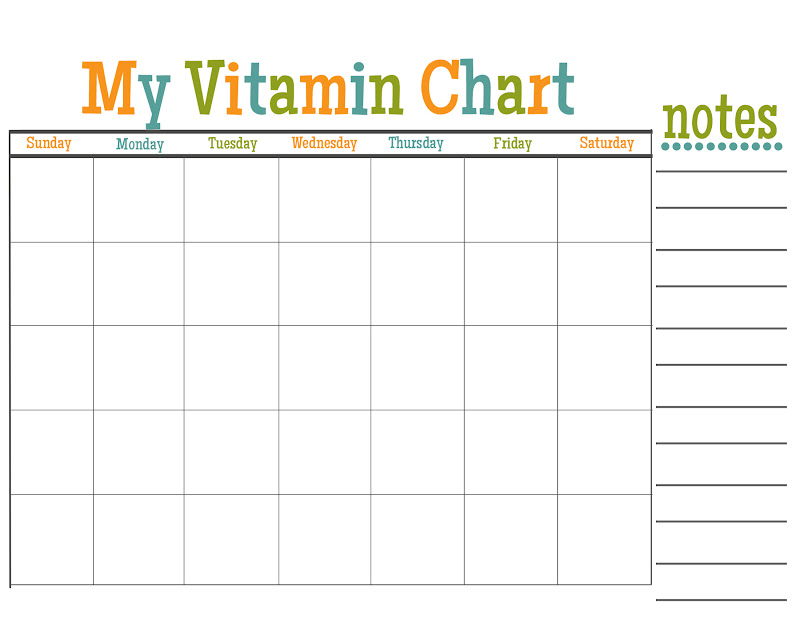
Vitamins Chart for Kids –
| All figures are in mg | |||||||
| Vitamin | 0-6 mths | 7-12 mths | 1-3 years | 4-8 years | 9-14 years | Found in | In Developing |
| A | 300-600 | 300-600 | 300-600 | 900 | 1700 | Carrots, Sweet Potato, Spinach, papaya, Peaches, Eggs, Oats | Eyes, Skin, Hair and Nails |
| C | 40 | 50 | 15 | 25 | 45 | Gauva, Orange, Brocoli, Grapes,Tomato, Banana, Kiwi | Produces Collage in child |
| D | 10 | 10 | 15 | 15 | 15 | Yogurt, Milk, Cheese, Cereals, Tuna, Egg Yolk | Develops bones and teeth |
| E | 4 | 5 | 6 | 7 | 11 | Wheat, Sunflower oil, Soyabean oil, Corn, Raw Mango, Almonds | Boosting immunity, metabolizes food faster |
| K | 2 | 2.5 | 30 | 55 | 60 | Green leafy vegetables, Eggs, Fish | Synthensis of blood clotting, proteins |
| B1 | 0.2 | 0.3 | 0.5 | 0.6 | 0.9 | Bread, Nuts,Green Peas, Fish | Develops healthy muscles and nerves |
| B2 | 0.3 | 0.4 | 0.5 | 0.6 | 0.9 | Spinach, Yohurt, Soyabean, Mushrooms, Eggs | Formation of RBC |
| B3 | 2 | 4 | 6 | 8 | 12 | Peanuts, Tuna,Chicken | Converts Carbohydrates |
| B5 | 1.7 | 1.8 | 2 | 3 | 4 | Cauliflower, Cucumber, Spinach, Broccoli, Sweet Potato | Helps in metabilozing, proteins, Carbohydrates and fats |
| B6 | 0.1 | 0.3 | 0.5 | 0.6 | 1 | Banana, Cabbage, Cauli flower, Bell peppers, Spinach | Vital in production of certain brain chemicals, |
| B7 | 5 | 6 | 8 | 12 | 20 | Peanuts, Tomato, Onions, Almonds, Carrots | Important for healthy hair and nails |
| B9 | 65 | 80 | 150 | 200 | 300 | Lentils, Strawberries,Beetroot, Broccoli, Spinach | Develops nervous system and cardiovascular system |
| B12 | 0.4 | 0.5 | 0.9 | 1.2 | 1.8 | Cows milk, Yogurt, Fish | Production of RBC’s and DNA |
Vitamins Chart for Teens
| Type | Benefits | Sources | Quantity |
| Vitamin A | Vitamin A prevents eye problems, promotes a healthy immune system, is essential for the growth and development of cells, and keeps skin healthy. | Good sources of vitamin A are milk, eggs, liver, fortified cereals, darkly colored orange or green vegetables (such as carrots, sweet potatoes, pumpkin, and kale), and orange fruits such as cantaloupe, apricots, peaches, papayas, and mangos. | Teen guys need 900 micrograms of vitamin A each day. |
| Teen girls need 700 micrograms each day. It is possible to get too much vitamin A, so be careful with supplements. Don’t take vitamin A supplements If you’re taking isotretinoin (such as Accutane) for acne or other skin problems. | |||
| Oral acne medicines are vitamin A supplements, and a continued excess of vitamin A can build up in the body, causing headaches, skin changes, or even liver damage. | |||
| Vitamin C (also called ascorbic acid) | Vitamin C is needed to form collagen, a tissue that helps to hold cells together. It’s essential for healthy bones, teeth, gums, and blood vessels. It helps the body absorb iron, aids in wound healing, and contributes to brain function. | You’ll find high levels of vitamin C in citrus fruits, strawberries, kiwi, guava, peppers, tomatoes, broccoli, and spinach. | Teen guys need 75 mg (milligrams; 1 milligram equals 1,000 micrograms) and girls need 65 mg of vitamin C a day. |
| Vitamin D | Vitamin D strengthens bones because it helps the body absorb bone-building calcium. | This vitamin is unique — your body manufactures it when you get sunlight on your skin! You can also get vitamin D from egg yolks, oily fish such as salmon, tuna, and sardines, and fortified foods like milk, soy milk, and orange juice. | Teens need 15 micrograms (600 IU) of vitamin D from food or supplements every day. Ask your doctor if supplements are right for you. |
| Vitamin E | Vitamin E is an antioxidant and helps protect cells from damage. It is also important for the health of red blood cells. | Vitamin E is found in many foods, such as vegetable oils, nuts, and green leafy vegetables. Avocados, wheat germ, and whole grains are also good sources. | Teen guys and girls need 15 mg of vitamin E every day. |
| Vitamin B12 | Vitamin B12 helps to make red blood cells, and is important for nerve cell function. | Vitamin B12 is found naturally in fish, red meat, poultry, milk, cheese, and eggs. It’s also added to some breakfast cereals. | Teens should get 2.4 micrograms of vitamin B12 daily. |
| Vitamin B6 | Vitamin B6 is important for normal brain and nerve function. It also helps the body break down proteins and make red blood cells. | A wide variety of foods contain vitamin B6, including potatoes, bananas, beans, seeds, nuts, red meat, poultry, fish, eggs, spinach, and fortified cereals. | Teen guys need 1.3 mg of vitamin B6 daily and teen girls need 1.2 mg. |
| Thiamin (also called vitamin B1) | Thiamin helps the body convert carbohydrates into energy and is necessary for the heart, muscles, and nervous system to function properly. | People get thiamin from many different foods, including fortified bread, cereals, and pasta; lean meats; dried beans, soy foods, and peas; and whole grains like wheat germ. | Teen guys need 1.2 mg of thiamin each day; teen girls need 1 mg. |
| Niacin (also called vitamin B3) | Niacin helps the body turn food into energy. It helps maintain healthy skin and is important for nerve function. | You’ll find niacin in red meat, poultry, fish, fortified hot and cold cereals, and peanuts. | Teen guys need 16 mg of niacin daily. Teen girls need 14 mg a day. |
| Riboflavin (also called vitamin B2) | Riboflavin is essential for growth, turning carbohydrates into energy, and producing red blood cells. | Some of the best sources of riboflavin are meat, eggs, legumes (like peas and lentils), nuts, dairy products, green leafy vegetables, broccoli, asparagus, and fortified cereals. | Teen guys need 1.3 mg of riboflavin per day and teen girls need 1 mg. |
| Folate (also known as vitamin B9, folic acid, or folacin) | Folate helps the body make red blood cells. It is also needed to make DNA. | Liver, dried beans and other legumes, green leafy vegetables, asparagus, and orange juice are good sources of this vitamin. So are fortified bread, rice, and cereals. | Teen girls and guys need 400 micrograms of folate daily. |
Vitamins Chart for Adults
| VITAMIN | BENEFITS | RECOMMENDED AMOUNT (daily RDA* or daily AI**) | UPPER LIMIT (UL) per day | GOOD FOOD SOURCES | DID YOU KNOW? |
| RETINOIDS AND CAROTENE (vitamin A; includes retinol, retinal, retinyl esters, and retinoic acid and is also referred to as “preformed” vitamin A. Beta carotene can easily be converted to vitamin A as needed.) | Essential for vision Lycopene may lower prostate cancer risk. Keeps tissues and skin healthy. Plays an important role in bone growth and in the immune system. Diets rich in the carotenoids alpha-carotene and lycopene seem to lower lung cancer risk. Carotenoids act as antioxidants. Foods rich in the carotenoids lutein and zeaxanthin may protect against cataracts | M: 900 mcg (3,000 IU)W: 700 mcg (2,333 IU)Some supplements report vitamin A in international units (IU’s). | 3,000 mcg (about 10,000 IU) | Sources of retinoids: beef liver, eggs, shrimp, fish, fortified milk, butter, cheddar cheese, Swiss cheese | Many people get too much-preformed vitamin A from food and supplements. Large amounts of supplemental vitamin A (but not beta carotene) can be harmful to bones. Normal 0 false false false EN-US X-NONE X-NONE |
| Sources of beta carotene:sweet potatoes, carrots, pumpkins, squash, spinach, mangoes, turnip greens | |||||
| THIAMIN (vitamin B1) | Helps convert food into energy. Needed for healthy skin, hair, muscles, and brain and is critical for nerve function. | M: 1.2 mg, W: 1.1 mg | Not known | Pork chops, brown rice, ham, soymilk, watermelons, acorn squash | Most nutritious foods have some thiamin. |
| RIBOFLAVIN(vitamin B2) | Helps convert food into energy. Needed for healthy skin, hair, blood, and brain | M: 1.3 mg, W: 1.1 mg | Not known | Milk, eggs, yogurt, cheese, meats, green leafy vegetables, whole and enriched grains and cereals. | Most Americans get enough of this nutrient. |
| NIACIN (vitamin B3, nicotinic acid) | Helps convert food into energy. Essential for healthy skin, blood cells, brain, and nervous system | M: 16 mg, W: 14 mg | 35 mg | Meat, poultry, fish, fortified and whole grains, mushrooms, potatoes, peanut butter | Niacin occurs naturally in food and can also be made by your body from the amino acid tryptophan, with the help of B6. |
| PANTOTHENIC ACID (vitamin B5) | Helps convert food into energy. Helps make lipids (fats), neurotransmitters, steroid hormones, and hemoglobin | M: 5 mg, W: 5 mg | Not known | Wide variety of nutritious foods, including chicken, egg yolk, whole grains, broccoli, mushrooms, avocados, tomato products | Deficiency causes burning feet and other neurologic symptoms. |
| PYRIDOXINE (vitamin B6, pyridoxal, pyridoxine, pyridoxamine) | Aids in lowering homocysteine levels and may reduce the risk of heart diseaseHelps convert tryptophan to niacin and serotonin, a neurotransmitter that plays key roles in sleep, appetite, and moods. Helps make red blood cells Influences cognitive abilities and immune function | 31–50 years old: M: 1.3 mg, W: 1.3 mg; 51+ years old: M: 1.7 mg, W: 1.5 mg | 100 mg | Meat, fish, poultry, legumes, tofu and other soy products, potatoes, noncitrus fruits such as bananas and watermelons | Many people don’t get enough of this nutrient. |
| COBALAMIN (vitamin B12) | Aids in lowering homocysteine levels and may lower the risk of heart disease. Assists in making new cells and breaking down some fatty acids and amino acids. Protects nerve cells and encourages their normal growth Helps make red blood cells and DNA | M: 2.4 mcg, W: 2.4 mcg | Not known | Meat, poultry, fish, milk, cheese, eggs, fortified cereals, fortified soymilk | Some people, particularly older adults, are deficient in vitamin B12 because they have trouble absorbing this vitamin from food. Those on a vegan or vegetarian diet often don’t get enough B12as it’s mostly found in animal products. They may need to take supplements. A lack of vitamin B12 can cause memory loss, dementia, and numbness in the arms and legs. |
| BIOTIN | Helps convert food into energy and synthesize glucose. Helps make and break down some fatty acids. Needed for healthy bones and hair | M: 30 mcg, W: 30 mcg | Not known | Many foods, including whole grains, organ meats, egg yolks, soybeans, and fish | Some is made by bacteria in the gastrointestinal tract. However, it’s not clear how much of this the body absorbs. |
| ASCORBIC ACID (vitamin C) | Foods rich in vitamin C may lower the risk for some cancers, including those of the mouth, esophagus, stomach, and breast. Long-term use of supplemental vitamin C may protect against cataracts. Helps make collagen, a connective tissue that knits together wounds and supports blood vessel walls. Helps make the neurotransmitters serotonin and norepinephrine Acts as an antioxidant, neutralizing unstable molecules that can damage cells. Bolsters the immune system | M: 90 mg, W: 75 mg Smokers: Add 35 mg | 2,000 mg | Fruits and fruit juices (especially citrus), potatoes, broccoli, bell peppers, spinach, strawberries, tomatoes, Brussels sprouts | Evidence that vitamin C helps reduce colds has not been convincing. |
| CHOLINE | Helps make and release the neurotransmitter acetylcholine, which aids in many nerve and brain activities. Plays a role in metabolizing and transporting fats | M: 550 mg, W: 425 mg | 3,500 mg | Many foods, especially milk, eggs, liver, salmon, and peanuts | No rmally the body makes small amounts of choline. But experts don’t know whether this amount is enough at certain ages. |
| CALCIFEROL (vitamin D) | Helps maintain normal blood levels of calcium and phosphorus, which strengthen bones. Helps form teeth and bones. Supplements can reduce the number of non-spinal fractures | 31–70: 15 mcg (600 IU) 71+: 20 mcg (800 IU) | 50 mcg (2,000 IU) | Fortified milk or margarine, fortified cereals, fatty fish | Many people don’t get enough of this nutrient. While the body uses sunlight to make vitamin D, it cannot make enough if you live in northern climates or don’t spend much time in the sun. |
| ALPHA-TOCOPHEROL (vitamin E) | Acts as an antioxidant, neutralizing unstable molecules that can damage cells. Protects vitamin A and certain lipids from damage. Diets rich in vitamin E may help prevent Alzheimer’s disease. | M: 15 mg, W: 15 mg (15 mg equals about 22 IU from natural sources of vitamin E and 33 IU from synthetic vitamin E) | 1,000 mg (nearly 1,500 IU natural vitamin E; 2,200 IU synthetic) | Wide variety of foods, including vegetable oils, salad dressings and margarines made with vegetable oils, wheat germ, leafy green vegetables, whole grains, nuts | Vitamin E does not prevent wrinkles or slow other aging processes. |
| FOLIC ACID(vitamin B9, folate, folacin) | Vital for new cell creationHelps prevent brain and spine birth defects when taken early in pregnancy; should be taken regularly by all women of child-bearing age since women may not know they are pregnant in the first weeks of pregnancy. Can lower levels of homocysteine and may reduce heart disease risk May reduce risk for colon cancer. Offsets breast cancer risk among women who consume alcohol | M: 400 mcg, W: 400 mcg | 1,000 mcg | Fortified grains and cereals, asparagus, okra, spinach, turnip greens, broccoli, legumes like black-eyed peas and chickpeas, orange juice, tomato juice | Many people don’t get enough of this nutrient.Occasionally, folic acid masks a B12 deficiency, which can lead to severe neurological complications. That’s not a reason to avoid folic acid; just be sure to get enough B12. |
| PHYLLOQUINONE, MENADIONE (vitamin K) | Activates proteins and calcium essential to blood clotting. May help prevent hip fractures | M: 120 mcg, W: 90 mcg | Not known | Cabbage, liver, eggs, milk, spinach, broccoli, sprouts, kale, collards, and other green vegetables | Intestinal bacteria make a form of vitamin K that accounts for half your requirements. If you take an anticoagulant, keep your vitamin K intake consistent. |
| CALCIUM | Builds and protects bones and teeth. Helps with muscle contractions and relaxation, blood clotting, and nerve impulse transmission. Plays a role in hormone secretion and enzyme activation. Helps maintain healthy blood pressure | 31–50: M: 1,000 mg, W: 1,000 mg 51-70: M: 1,000 mg, W: 1,200 mg, 71+: M: 1,200 mg, W: 1,200 mg | 2,500 mg | Yogurt, cheese, milk, tofu, sardines, salmon, fortified juices, leafy green vegetables, such as broccoli and kale (but not spinach or Swiss chard, which have binders that lessen absorption) | Adults absorb roughly 30% of calcium ingested, but this can vary depending on the source. Diets very high in calcium may increase the risk of prostate cancer. |
| CHLORIDE | Balances fluids in the body. A component of stomach acid, essential to digestion | 14-50: M/W: 2.3 g, 51-70 M/W: 2.0 g, 71+: M/W: 1.8 g | Not known | Salt (sodium chloride), soy sauce, processed foods | New recommendations (DRIs) for chloride are under development by the Institute of Medicine. |
| CHROMIUM | Enhances the activity of insulin, helps maintain normal blood glucose levels, and is needed to free energy from glucose | 14–50: M: 35 mcg, 14-18: W: 24 mcg 19-50: W: 25 mcg 51+: M: 30 mcg, W: 20 mcg | Not known | Meat, poultry, fish, eggs, potatoes, some cereals, nuts, cheese | Unrefined foods such as brewer’s yeast, nuts, and cheeses are the best sources of chromium, but brewer’s yeast can sometimes cause bloating and nausea, so you may choose to get chromium from other food sources. |
| COPPER | Plays an important role in iron metabolism and immune system. Helps make red blood cells | M: 900 mcg, W: 900 mcg | 10,000 mcg | Liver, shellfish, nuts, seeds, whole-grain products, beans, prunes, cocoa, black pepper | More than half of the copper in foods is absorbed. |
| FLUORIDE | Encourages strong bone formation. Keeps dental cavities from starting or worsening | M: 4 mg, W: 3 mg | 10 mg | Water that is fluoridated, toothpaste with fluoride, marine fish, teas | Harmful to children in excessive amounts. |
| IODINE | Part of thyroid hormone, which helps set body temperature and influences nerve and muscle function, reproduction, and growth. Prevents goiter and a congenital thyroid disorder | M: 150 mcg, W: 150 mcg | 1,100 mcg | Iodized salt, processed foods, seafood | To prevent iodine deficiencies, some countries add iodine to salt, bread, or drinking water. |
| IRON | Helps hemoglobin in red blood cells and myoglobin in muscle cells ferry oxygen throughout the body. Needed for chemical reactions in the body and for making amino acids, collagen, neurotransmitters, and hormones | 19–50: M: 8 mg, W: 18 mg 51+: M: 8 mg, W: 8 mg | 45 mg | Red meat, poultry, eggs, fruits, green vegetables, fortified bread and grain products | Many women of childbearing age don’t get enough iron. Women who do not menstruate probably need the same amount of iron as men. Because iron is harder to absorb from plants, experts suggest vegetarians get twice the recommended amount (assuming the source is food). |
| MAGNESIUM | Needed for many chemical reactions in the body Works with calcium in muscle contraction, blood clotting, and regulation of blood pressure. Helps build bones and teeth | 18+: M: 420 mg, W: 320 mg | 350 mg (Note: This upper limit applies to supplements and medicines, such as laxatives, not to dietary magnesium.) | Green vegetables such as spinach and broccoli, legumes, cashews, sunflower seeds and other seeds, halibut, whole-wheat bread, milk | The majority of magnesium in the body is found in bones. If your blood levels are low, your body may tap into these reserves to correct the problem. |
| MANGANESE | Helps form bones. Helps metabolize amino acids, cholesterol, and carbohydrates | M: 2.3 mg, W: 1.8 mg | 11 mg | Fish, nuts, legumes, whole grains, tea | If you take supplements or have manganese in your drinking water, be careful not to exceed the upper limit. Those with liver damage or whose diets supply abundant manganese should be especially vigilant. |
| MOLYBDENUM | Part of several enzymes, one of which helps ward off a form of severe neurological damage in infants that can lead to early death | M: 45 mcg, W: 45 mcg | 2,000 mcg | Legumes, nuts, grain products, milk | Molybdenum deficiencies are rare. |
| PHOSPHORUS | Helps build and protect bones and teeth. Part of DNA and RNA. Helps convert food into energy. Part of phospholipids, which carry lipids in blood and help shuttle nutrients into and out of cells | M: 700 mg, W: 700 mg | 31–70: 4,000 mg 71+: 3,000 mg | Wide variety of foods, including milk and dairy products, meat, fish, poultry, eggs, liver, green peas, broccoli, potatoes, almonds | Certain drugs bind with phosphorus, making it unavailable and causing bone loss, weakness, and pain. |
| POTASSIUM | Balances fluids in the body. Helps maintain steady heartbeat and send nerve impulses. Needed for muscle contractions. A diet rich in potassium seems to lower blood pressure. Getting enough potassium from your diet may benefit bones | M: 4.7 g, W: 4.7 g | Not known | Meat, milk, fruits, vegetables, grains, legumes | Food sources do not cause toxicity, but high-dose supplements might. |
| SELENIUM | Acts as an antioxidant, neutralizing unstable molecules that can damage cells. Helps regulate thyroid hormone activity | M: 55 mcg, W: 55 mcg | 400 mcg | Organ meats, seafood, walnuts, sometimes plants (depends on soil content), grain products | Researchers are investigating whether selenium may help reduce the risk of developing cancer, but with mixed results. |
| SODIUM | Balances fluids in the body. Helps send nerve impulses. Needed for muscle contractions. Impacts blood pressure; even modest reductions in salt consumption can lower blood pressure | M: 2,300 mg, W: 2,300 mg | Not determined | Salt, soy sauce, processed foods, vegetables | While experts recommend that people limit sodium intake to 2,300 mg, most Americans consume 4,000–6,000 mg a day. |
| SULFUR | Helps form bridges that shape and stabilize some protein structures. Needed for healthy hair, skin, and nails | Unknown | Unknown | Protein-rich foods, such as meats, fish, poultry, nuts, legumes | Sulfur is a component of thiamin and certain amino acids. There is no recommended amount for sulfur. Deficiencies occur only with a severe lack of protein. |
| ZINC | Helps form many enzymes and proteins and create new cells. Frees vitamin A from storage in the liver. Needed for immune system, taste, smell, and wound healing. When taken with certain antioxidants, zinc may delay the progression of age-related macular degeneration | M: 11 mg, W: 8 mg | 40 mg | Red meat, poultry, oysters and some other seafood, fortified cereals, beans, nuts | Because vegetarians absorb less zinc, experts suggest that they get twice the recommended requirement of zinc from plant foods. |

Click here for Pros and cons of Vitamin supplements -
A large number of people across the globe take some type of supplement each day, with multivitamin supplements being one of the more popular choices. While there can be some benefits to taking vitamin supplements, certain supplements, or combinations of supplements, can be risky for some individuals. Getting too much of some vitamins may also cause toxicity symptoms.
If you pride yourself on consuming a healthy, balanced diet, you may be considering or already taking a multi-vitamin. Or perhaps you are worried you aren’t getting enough nutrients in your diet?
A multi-vitamin is a tablet or liquid containing a variety of vitamins and is intended to supply dietary supplements for those looking for better health. Multi-vitamins can come in a range of forms, ranging from tablets and capsules to powders and liquids.
Many multi-vitamins are formulated or labeled to differentiate consumer sectors, such as prenatal, children, over 50, men’s, women’s, or diabetic, but for some nutritional experts multi-vitamins are nothing more than a multibillion-dollar industry that offers little in the way of health benefits.
Pros –
- Provide both vitamins and minerals that may be lacking in a person’s diet.
- They improve many bodily functions and can assist with mental health.
- Decrease your risk of vitamin deficiency.
- It can help you digest food.
- Allows fussy eaters, such as children, a regular intake of essential vitamins.
- Boosts energy and concentration
- Many are benefited because they take them in addition to a healthy diet and use them correctly.
Cons-
- Risk of becoming reliant on multi-vitamins.
- Risk of vitamin toxicity.
- It can in some cases cause more harm than good.
- Too many vitamins get overdosed
- Some don’t work well
- They may or may not be safe
- It’s best to avoid taking vitamin A supplements while you’re pregnant, as this may damage the development of your baby
- More than 10mg per day of vitamin B6 can lead to loss of feeling in the arms and legs
- Doses of over 1,000mg a day of vitamin C can lead to abdominal pain and diarrhea
- Taking excess doses of vitamin A can lead to liver failure and potential death.
- The excess calories can cause athletes to actually gain fat rather than muscles.
- vitamin supplements may interfere with prescribed medicines for certain medical conditions and disorders.
- Vitamin supplements usually need to be taken daily, maintaining a vitamin supplement ‘diet’ can become expensive.
One of the biggest problems with multi-vitamins is that people presume they are a good supplement for a healthy, balanced diet. They’re not. A good diet is always the best way to achieve overall good health.
Multi-vitamins are designed for those who struggle to eat healthily, a prime example being children who are fussy about eating fruit and vegetables. Children do a lot of running around and that burns up energy and vitamins fast, so without a good diet to support an active lifestyle, a multi-vitamin could be of some benefit.
Women, on the other hand, need lots of iron to make up for the loss of minerals during monthly menstruation. With a recommended daily intake of 18 milligrams, a multi-vitamin containing iron could be beneficial.
Who should avoid supplemental vitamins –
People who take certain medications may need to limit the amount of some vitamins they take due to potential interactions. Taking certain antioxidant vitamins, including beta carotene, can increase health risks for smokers, and pregnant women shouldn’t take excessive amounts of vitamin A because this can raise their risk of birth defects.
Symptoms and signs of vitamin and minerals deficiency and toxicity |
||
| Nutrient | Signs and Symptoms of Deficiency | Signs and Symptoms of Toxicity |
| Vitamin A(Retinol) | Night blindness, xerosis, Bitot’s spot, keratomalacia, perifollicular hyperkeratosis, anorexia, bone changes | Anorexia, headache, blurred vision, dry skin, pruritus, painful extremities, hepatomegaly, splenomegaly |
| Vitamin D | Rickets/osteomalacia, bone pain, muscle weakness, fatigue, frequent infections, geriatric cognitive defects, pediatric asthma | Hypercalcemia and tetany, anorexia, nausea, vomiting, constipation, polydipsia, polyuria, renal stones, hypertension |
| Vitamin E | Loss of reflexes, gait disturbance (posterior tract-spinocerebellar symptoms), paresis of gaze, eczema, psoriasis, poor wound healing, broken capillaries | Fatigue, headache, delayed wound healing, increased bleeding, muscle weakness |
| Vitamin K | Bruising, bleeding gums, poor wound clotting | Hemolytic anemia, liver damage |
| Vitamin B1 (Thiamine) | Beriberi, edema, peripheral neuropathies/hot feet, lactic acidosis with carbohydrate | Arrhythmias, anaphylactic shock with large intravenous doses |
| Vitamin B2 (Riboflavin) | Reddened, greasy scaly, pruritic skin in the oculo-orogenital areas; dyssebacia (sharkskin), stomatitis, angular cheilosis, magenta tongue, photosensitivity, corneal vascularization | No cases reported |
| Niacin | Pellagra: photosensitive dermatitis; diarrhea; mucosal inflammation; dementia; beefy, red tongue | Release of histamine: severe flushing, pruritus, gastrointestinal disturbances, elevated serum uric acid and glucose, hepatic toxicity |
| Vitamin B5 (Pantothenic Acid) | Burning feet syndrome, fatigue, enteritis, alopecia, dermatitis | Diarrhea, water retention |
| Vitamin B6 | Seborrheic dermatitis, glossitis, cheilosis, angular stomatitis, peripheral neuropathy, irritability, convulsions | Peripheral sensory neuropathy, ataxia, perioral numbness |
| Folate | Megaloblastic anemia, glossitis, hair loss, cognitive defects, pallor, persistent fatigue, tender tongue, absence of neurological symptoms | Masks vitamin B12deficiency |
| Vitamin B12(Cobalamin) | Megaloblastic anemia, glossitis & oral mucosal lesions, tachycardia, anorexia, sensory neuropathy/paresthesias, muscle weakness, memory loss, depression, constipation, fatigue | No clear toxicity reported |
| Biotin | Scaly dermatitis, alopecia | None reported |
| Vitamin C | Scurvy, bleeding gums, anemia, fatigue, aching bones, joints, and muscles, perifollicular hemorrhages, poor wound healing | Nausea, abdominal cramps, diarrhea |
| Calcium | Tetany, depression, anxiety, irritability, bone pain, osteoporosis, rickets/ chondromalacia | Constipation, hypercalciuria, hypercalcemia |
| Phosphorus | Bone loss (rickets), weakness, anorexia, pain | Tetany (infants), arrhythmias |
| Potassium | Weakness, anorexia, nausea, irrational behavior, arrhythmias | Hyperkalemiacardiac toxicity |
| Sodium | Hypovolemia, muscle weakness | Edema, hypertension |
| Chloride | Infants: hypochloremic metabolic acidosis | Hypertension |
| Magnesium | Nausea, weakness, cognitive impairment, arrhythmias, constipation, muscle cramps | Nausea, vomiting, diarrhea, hypotension |
| Iron | Fatigue, anemia, glossitis | Acute: vomiting, cyanosis, diarrhea, shock Chronic: hepatomegaly, slate-gray skin, cardiomyopathy, arthropathy |
| Zinc | Anorexia, growth retardation, hypogonadism, hypogeusia, poor wound healing | Chronic: hypocupremia (copper deficiency), microcytosis, impaired immune response, low HDL levels |
| Iodine | Endemic goiter, cretinism | Iodide goiter, myxedema (severe hypothyroidism) |
| Selenium | Muscle pain, cardiomyopathy, growth retardation, osteoarthritis(cartilage defects) | Alopecia, fingernail changes, garlic odor, nausea, diarrhea, peripheral neuropathy |
| Copper | Hypochromic anemia, neutropenia, osteoporosis, growth retardation | Hyperactivity, depression, headaches, capillary fragility |
| Manganese | Weight loss, dementia, nausea/vomiting, changes in hair color, carb intolerance | Neurologic, cognitive, and behavioral changes |
| Fluoride | Not an essential nutrient | Mottled, pitted teeth; impaired bone health; kidney, nerve, and muscle dysfunction |
| Chromium | Weight loss, peripheral neuropathy, glucose intolerance | Renal impairment |
| Molybdenum | Irritability, coma | Gout-like syndrome |
| N-Acetyl Cysteine, Glutathione | Cataracts, macular degeneration, elevated gamma-glutamyl transpeptidase | None reported |
Click here for Myths about Vitamins
Vitamins have been around for nearly a hundred years. That’s enough time for scientists to learn a lot about how they work. It’s also plenty of time for rumors to spread.
- Myth #1 – Vitamins make you hungry: No study supports this. Vitamins can give you more energy, you may become more active, burn more calories, and then feel hungry. Studies actually have shown that vitamins, especially multivitamins containing chromium, appear to reduce hunger.
- Myth #2 – If I take vitamins, I don’t have to worry about diet or exercising: They’re called nutritional supplements for a reason – they supplement a healthy lifestyle that includes a balanced diet and regular exercise. Aging, stress, and other issues can make it difficult for your body to absorb nutrients from your diet. That’s why many doctors recommend a good multi.
- Myth #3 – It’s best to take vitamins on an empty stomach: Take all supplements as directed and that’s typically with food. Ingesting them with a meal helps absorption and gets you in the habit of taking them regularly.
- Myth #4- Regular activity gives me enough sunshine for sufficient Vitamin D: Most of us spend our days indoors working or watching TV. If we do go out, we slather on sunscreen. Whether you live in a sunny city, you may not be getting enough sunshine exposure to create Vitamin D. Yet Vitamin D is important for bone, breast, colon health, and more.
- Myth #5 – Organic vitamins are better than synthetic: Your body cannot tell the difference. Certain organic vitamins may have naturally occurring fiber or other nutrients that synthetic does not. Usually either will suffice.
- Myth #6 – All nutritional supplements are safe: Google the word vitamins and see how many results appear. Some are legit, some are not. How can you tell the difference? If a company makes outrageous claims to cure a disease or lose weight while you sleep, be suspicious. Look for reputable companies that sell high-quality products, are guaranteed, have a long history in the industry, and comply with FDA guidelines.
- Myth #7 – Taking vitamins affect your weight: Vitamins have no calories. There are no studies linking vitamins with weight gain.
- Myth #8 – Supplements don’t expire: Whether in capsule or tablet form, over time, even supplements kept in dark bottles will break down. Although they might not be harmful to take, they will lose some of their potency. Follow the “best used by” date.
- Myth #9 – The bathroom medicine cabinet is the best place to store vitamins: Supplements are best stored in a dry, cool place, so a medicine cabinet exposed to heat and moisture is probably not a good idea. Instead keep supplements in a kitchen cabinet away from the stove or sink.
- Myth #10 – You can’t overdose on vitamins: It is possible to consume too many supplements. Extra amounts of water-soluble vitamins like B or C are excreted daily, fat-soluble vitamins including A and E get stored in fat tissues, so you’ll want to monitor your intake. Follow the recommended daily allowances and you should be in good shape.
- Myth #11 – Probably you need multivitamin: A large number of people take a multivitamin — but they might be just wasting their money. Scientists say there’s no strong evidence to back up the belief that taking multivitamins makes you healthier.
- Myth #12 – Vitamins, minerals, and supplements are “magic bullets” for good health: Vitamins, minerals, and supplements may provide important benefits for certain people, but, taken alone, don’t guarantee good health. Many doctors and scientists generally agree that a wellness plan should include exercise, a well-balanced diet, vitamins and supplements, restful sleep, meaningful work, school and/or volunteering, relaxation, and enjoyable time spent with families and friends.
- Myth #13 – All Multivitamins are the same: There are no legal definitions of ‘Multivitamins’. Read labels to find a “multi” that doesn’t exceed 100 percent of the Daily Value (DV) for any nutrients.
- Multi #14 – What’s listed on the label is what’s really in the product: Supplement manufacturers must list each ingredient (and its quantity) in a product, but they don’t have to prove the accuracy of these lists. To buy products with a certified seal-such as the USP seal or certification from a medical laboratory or an established brand.
- Myth #15 – Taking a multi-vitamin can make up for a poor diet and prevent disease: The fact is scientists are still undecided about whether multivitamins are effective. Some studies suggest multis protect against premature death. Others show they offer no benefit. Either way, food first is always the best prescription for needed nutrients. Nature packages vitamins and minerals in perfect combinations and benefits our bodies with yet-to-be-discovered nutrients, too. Dietary supplements are intended to supplement the diet, not replace it.
- Myth #16 – All supplements are safe because they are natural: Anything that has the potential to be healing also has the potential to be harmful. Even though nutrients come from nature, when manufacturers process them into pill-form, they become unnatural. What’s more, natural doesn’t necessarily mean safe or effective.
- Myth #17 – Supplements are never necessary: Dietary supplements may be beneficial for certain populations and to help manage various conditions. Examples include:
- Someone on a calorie-restricted diet who may benefit from a multivitamin and mineral
- Someone who is allergic to milk who may benefit from calcium and vitamin D
- A vegan who may benefit from taking vitamin B12
- Pregnant moms who benefit from taking folic acid
The jury is out on many supplements, but most experts believe products are only helpful if you’re deficient in a given nutrient. Women who lose a lot of iron due to heavy menstrual bleeding, for example, might need an additional iron supplement while those who are going through menopause may need extra calcium and vitamin D.
- Myth #18 – Supplements don’t interact with medications: Certain supplements, including vitamin K (which helps blood clot), zinc (which some people believe boosts immunity) and omega-3s (which thin the blood), may interact with prescription and over-the-counter medications. Whether you’re taking a daily aspirin to protect against heart disease or you’re on an antibiotic for a bacterial infection, the supplements you’re taking could interfere or enhance the effects of your medications. You should always share with your physician a list of any supplements you are currently taking to help avoid these negative interactions.
- Myth #19 – Supplements always play well together: Some supplements help each other out, just like teammates. Vitamin C helps the body absorb iron, for example. Others actually work against each other. For example, calcium blocks the absorption of iron, and zinc blocks copper absorption. So taking high doses of one nutrient can actually cause a deficiency in another. Let your doctor know about every supplement you’re taking, even if you think it’s harmless. Many vitamins and minerals, as well as herbal supplements, have side effects ranging from a rash to stomach upset. They can also interact with medications and other vitamins.
- Myth #20 – If small doses of vitamins are good, big doses must be even better: It is important to get the recommended daily allowance (RDA) of all the vitamins, but taking large doses (also known as mega-doses) can be harmful, especially for the fat-soluble vitamins that are stored in the body, but also for some of the water-soluble vitamins too.
- Myth #21 – You can’t get enough vitamins from the foods you eat: If you eat a variety of healthy foods you will get vitamins from your diet. In fact, nutritionists prefer that people get their vitamins from foods because foods that contain vitamins also have other substances that scientists have found help keep people healthy
- Myth #22 – Vitamins help me lose weight: There is no evidence that vitamins affect weight loss or gain. Herbal weight loss supplements have risen in popularity over the years, but there is little proof that they’re effective. Vitamin pills contain no calories themselves, unless you’re taking a chewable which contains sugar, but this should have little if any, the effect on your weight.
- Myth #23 – It doesn’t matter what time of day I take my vitamins: Your body performs different functions at different times of the day, and vitamins have certain requirements for proper utilization. Most vitamins are best taken with meals. Fat-soluble vitamins need fat in order to be absorbed. Calcium should be taken before bedtime because the body utilizes the mineral at night. Vitamin C lasts only a few hours in the bloodstream and should be taken every few hours. To get the most out of your vitamins, do some research to learn more about them. If you take multiple supplements, try organizing them in a compartmentalized pillbox.
- Myth #24 – You must eliminate all fat from your diet: The most nutritionally sound approach to dietary fat is low saturated fat, not no fat. Some nutrients are found in significant quantities only in higher fat foods.
The Bottom line –
More isn’t always better when it comes to vitamins – and it’s best to get them naturally from dietary sources, as long as you eat a balanced diet and have no health problems that affect your ability to absorb them. So, don’t automatically reach for a pill to improve your health – choose more nutrient-rich foods instead.

